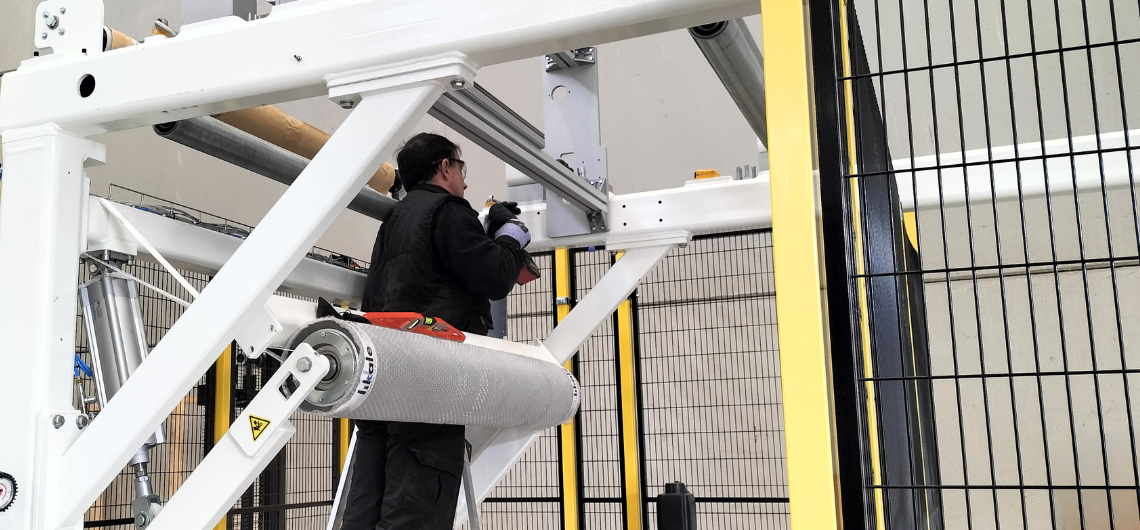Optimizing Production: Advantages of External Industrial Maintenance Management

Photo: Gurpea Industrial Maintenance Technician during a movement, machinery assembly and enclosure work at Agil Packaging System (APS).
Efficient industrial maintenance management is essential to the smooth operation of any business. However, many organizations face the challenge of balancing the need for effective maintenance with the management of their internal resources. In this scenario, outsourcing industrial maintenance management emerges as a key strategy to optimize operations and maximize efficiency.
By freeing up internal resources and leveraging the expertise of external suppliers, organizations can focus on their core competencies and remain agile in an ever-changing business environment.
In this sense, it is essential to rely on a supplier with experience in diverse industrial actions, responsiveness, and a complete service that can cover the entire process, from assessment to project execution, including the proposal and coordination through in-house managers.
In the case of Gurpea, the maintenance management offered is complete, integrating all the services (SAT, electrical installation, layout modification, assembly and repair of machines, adaptation to safety regulations and selection/recruitment of technical personnel), taking on the action completely and becoming a strategic, solid and reliable partner.
Gurpea is a serious and responsible company, with highly qualified technicians, who offer a fast and quality service".
- Óscar Arbiol, Plastigaur.- Maintenance Manager.

- Learn more about our capabilities and services.
- Or contact our sales team directly at comercial@gurpea.com - T. 948 102 014. We will visit you without obligation to assess actions or pending works.
Advantages of external management of Industrial Maintenance.
1. Focus on Core Business:
Outsourcing maintenance management allows companies to concentrate on their core business without being distracted by the detailed management of maintenance services. By entrusting this function to external specialists, organizations can focus their resources and energy on innovation, production and other areas critical to their success.
2. Access to Specialized Expertise:
Outsourcing provides access to a specialized skill set and expertise in industrial maintenance. Specialized maintenance management companies typically have highly trained personnel with experience in the latest technologies and industry best practices. This expertise can translate into more efficient maintenance and proactive approaches to prevent problems before they occur.
3. Reduced Operating Costs:
Outsourcing industrial maintenance management can generate significant savings compared to maintaining an in-house team. Maintenance management companies can often offer economies of scale by managing multiple clients, which reduces operating costs for each client. It also eliminates the need to hire and train in-house staff, as well as maintain specialized infrastructures.
4. Flexibility and Adaptability:
Industrial maintenance needs can vary over time due to changes in market demand, production cycles and technological advances. Outsourcing maintenance management provides companies with the flexibility to quickly adjust their services according to fluctuations in workload or changes in market requirements.
5. Increased Availability and Uptime:
Outsourcing maintenance management often involves service level agreements (SLAs) that ensure fast and efficient response to emergencies and minimize unplanned downtime. This contributes directly to improving the availability and reliability of industrial equipment, optimizing production and increasing customer satisfaction.
